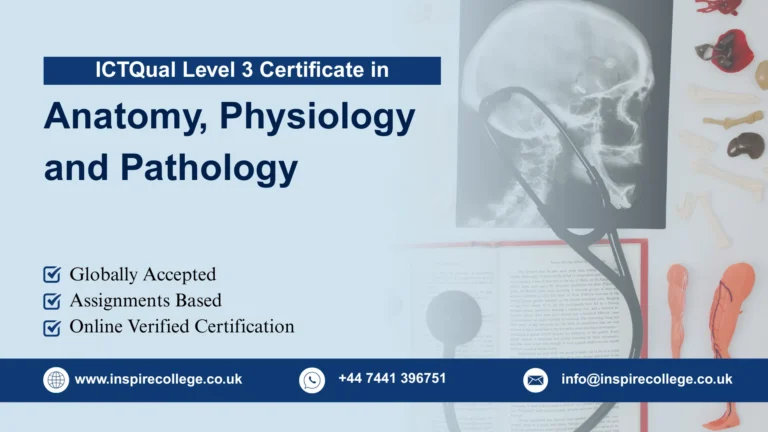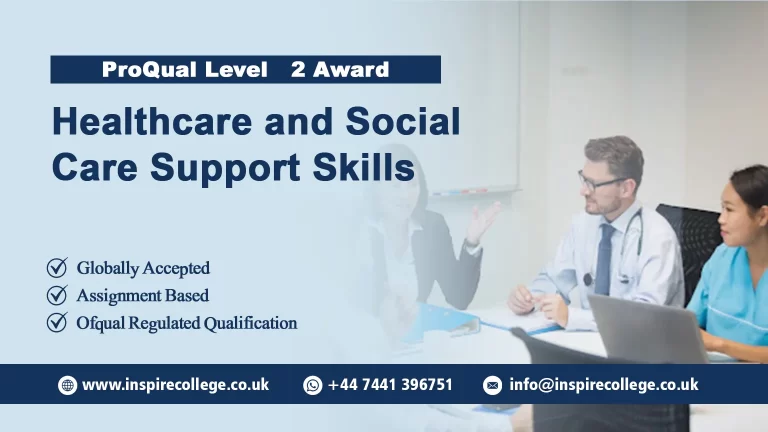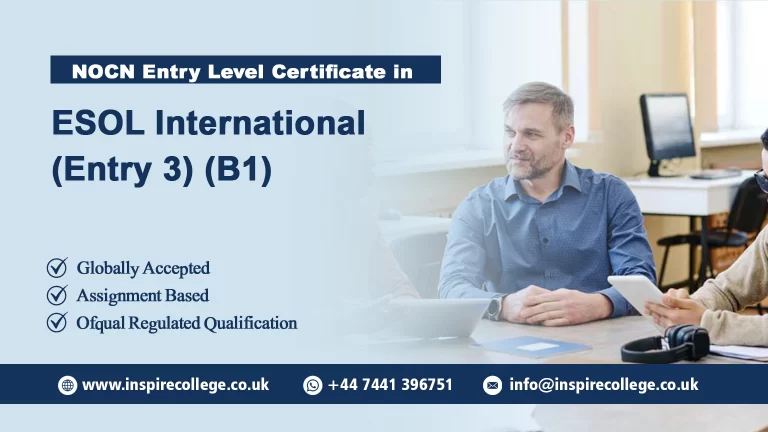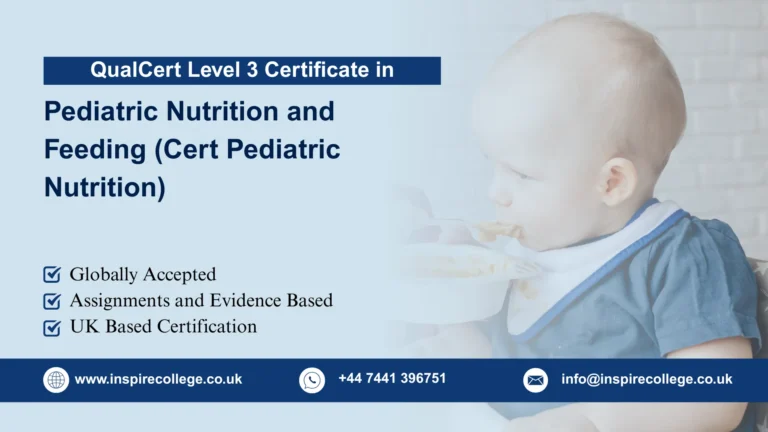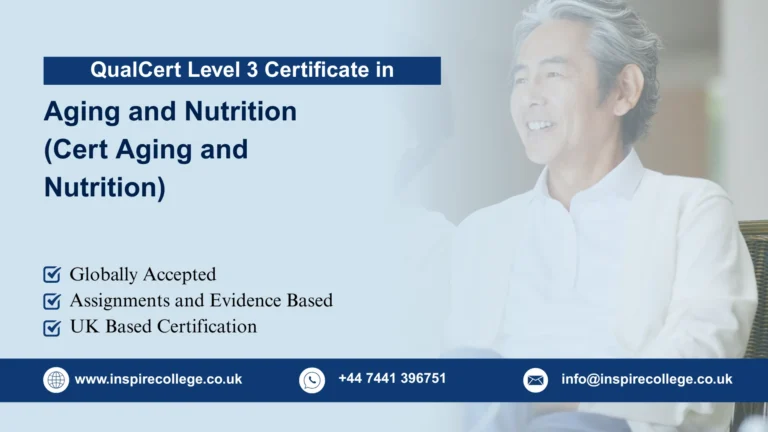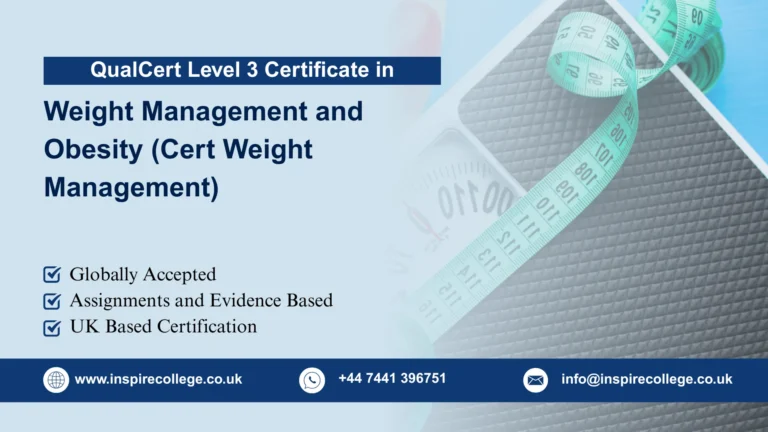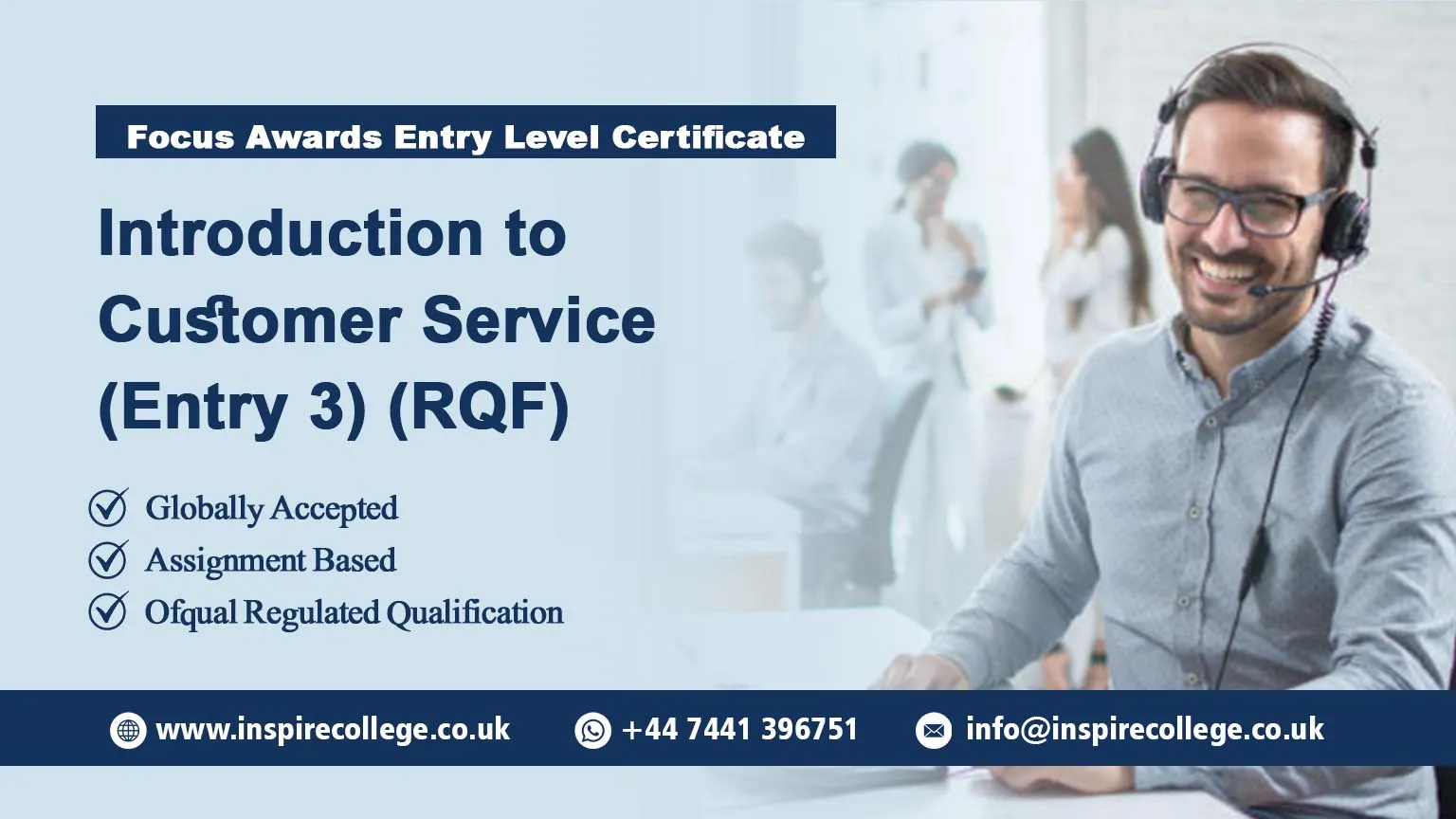
Focus Awards Level 2 Certificate in Supporting Teaching and Learning in Schools (RQF)
The Focus Awards Level 2 Certificate in Supporting Teaching and Learning in Schools (RQF) is an essential qualification for individuals aspiring to work in school settings, particularly as teaching assistants or support staff. This qualification offers a comprehensive understanding of the role and responsibilities involved in supporting teaching and learning in a school environment, equipping learners with the skills and knowledge needed to succeed in these positions.
Designed for those who are new to the field or looking to formalize their experience, the Level 2 Certificate is a recognized qualification within the Regulated Qualifications Framework (RQF). This framework ensures that the course content meets the high standards set by the UK government, making it a valuable credential for anyone pursuing a career in education support.
The Focus Awards Level 2 Certificate covers a range of topics that are crucial for supporting teaching and learning. Learners will explore areas such as child development, safeguarding, and the principles of inclusive education. This qualification not only provides practical skills but also helps to develop a deeper understanding of the educational system and the importance of supporting both students and teachers.
A key aspect of the course is its focus on practical application. Students will learn how to support students with a variety of needs, including those with special educational needs and disabilities (SEND), as well as how to assist in creating a positive and engaging learning environment. The qualification also emphasizes the importance of promoting student well-being, behavior management, and effective communication in the classroom.
One of the greatest advantages of the Focus Awards Level 2 Certificate is its flexibility. The qualification can be studied either full-time or part-time, making it suitable for individuals who are already working in schools or those with other commitments. The course typically involves a combination of classroom-based learning and practical assessment, allowing learners to apply their knowledge in real-world settings.
Completing this qualification can open up a range of career opportunities in education. Many learners go on to secure roles as teaching assistants, learning support assistants, or other positions that involve direct support for students and teachers. Additionally, the Level 2 Certificate in Supporting Teaching and Learning serves as a solid foundation for further study in the field of education, such as progressing to higher-level qualifications like the Level 3 Certificate.
The Focus Awards Level 2 Certificate in Supporting Teaching and Learning in Schools (RQF) is an invaluable qualification for those wishing to enter or advance in the field of education support. It offers a clear path to enhancing knowledge and skills while providing a strong foundation for further career development. Whether you are just starting out or looking to formalize your experience, this qualification is an excellent way to improve your prospects and make a meaningful impact in the lives of students.
- Age Requirement: Learners must be at least 16 years old.
- Previous Experience: While no formal qualifications are required, some experience in a school or educational environment is beneficial.
- English Proficiency: A basic understanding of English, as the course requires reading and writing tasks.
- Disclosure and Barring Service (DBS) Check: Learners must undergo a DBS check, as the course involves working with children in schools.
- Motivation and Commitment: A strong interest in supporting children’s learning and development within a school setting.
Mandatory Units
The Focus Awards Level 2 Certificate in Supporting Teaching and Learning in Schools (RQF) qualification, Learners must complete all mandatory units to achieve 24 credits, 3 credits from optional group A and 3 credits from optional group B. Learners will achieve a total of 30 credits.
Mandatory Units
| Unit Title | Credit | Guided Learning Hours |
| Child and young person development | 2 | 15 |
| Safeguarding the welfare of children and young people | 3 | 20 |
| Communication and professional relationships with children, young people and adults | 2 | 15 |
| Equality, diversity and inclusion in work with children and young people | 2 | 15 |
| Help improve own and team practice in schools | 3 | 15 |
| Maintain and support relationships with children and young people | 3 | 15 |
| Support children and young people’s health and safety | 3 | 15 |
| Support children and young people’s positive behaviour | 2 | 15 |
| Support learning activities | 4 | 25 |
Optional Units
| Unit Title | Credit | Guided Learning Hours |
| Schools as organisations | 3 | 20 |
| Schools as organisations | 3 | 15 |
| Contribute to supporting bilingual learners | 2 | 12 |
| Invigilate tests and examinations | 3 | 19 |
| Prepare and maintain learning environments | 3 | 18 |
| Provide displays in schools | 3 | 15 |
| Support assessment for learning | 4 | 20 |
| Support children and young people at meal or snack times | 3 | 18 |
| Support children and young people with disabilities and special educational needs | 4 | 26 |
| Support children and young people’s play and leisure | 3 | 16 |
| Support children and young people’s travel outside of the setting | 3 | 22 |
| Support extra-curricular activities | 3 | 15 |
| Support the use of information and communication technology for teaching and learning | 2 | 12 |
| Move and position individuals in accordance with their plan of care | 4 | 26 |
| Provide support for therapy sessions | 2 | 14 |
Learning Outcomes for the Focus Awards Level 2 Certificate in Supporting Teaching and Learning in Schools (RQF)
Here are the learning outcomes associated with each of the study units for the Focus Awards Level 2 Certificate in Supporting Teaching and Learning in Schools (RQF):
1. Child and Young Person Development (2 credits, 15 GLH)
- Understand the developmental stages of children and young people.
- Identify factors that influence the development of children and young people.
- Recognize the impact of developmental changes on children’s behavior and learning.
2. Safeguarding the Welfare of Children and Young People (3 credits, 20 GLH)
- Understand the principles and importance of safeguarding in a school setting.
- Identify signs and symptoms of abuse and neglect.
- Understand how to respond appropriately to safeguarding concerns and report them.
- Recognize the importance of promoting children’s well-being and protection.
3. Communication and Professional Relationships with Children, Young People, and Adults (2 credits, 15 GLH)
- Understand the key principles of communication in professional settings.
- Develop effective communication skills when working with children, young people, and adults.
- Build and maintain professional relationships that support positive learning environments.
- Use appropriate communication methods for different individuals and situations.
4. Equality, Diversity, and Inclusion in Work with Children and Young People (2 credits, 15 GLH)
- Understand the importance of equality, diversity, and inclusion in educational settings.
- Promote an inclusive environment that celebrates diversity and respects individuals’ differences.
- Identify and challenge discriminatory behavior in educational settings.
- Support children and young people in understanding equality and diversity.
5. Help Improve Own and Team Practice in Schools (3 credits, 15 GLH)
- Reflect on personal and professional development in the context of school settings.
- Identify areas for improvement and implement strategies to enhance own practice.
- Work collaboratively with the team to improve the overall quality of teaching and support.
- Participate in team discussions and contribute to improving school practices.
6. Maintain and Support Relationships with Children and Young People (3 credits, 15 GLH)
- Establish and maintain positive relationships with children and young people.
- Recognize the importance of building trust and respect in relationships with learners.
- Support children and young people in overcoming personal or academic challenges.
- Provide emotional and social support to ensure a positive learning experience.
7. Support Children and Young People’s Health and Safety (3 credits, 15 GLH)
- Understand health and safety procedures within the school setting.
- Support children and young people in maintaining a safe environment.
- Recognize and address potential hazards or risks that may impact health and safety.
- Implement safety measures to protect children and young people in various activities.
8. Support Children and Young People’s Positive Behaviour (2 credits, 15 GLH)
- Understand strategies for promoting positive behavior in children and young people.
- Identify the causes of challenging behavior and how to address them.
- Support the development of social and emotional skills to encourage positive behavior.
- Implement behavior management techniques in a professional and supportive manner.
9. Support Learning Activities (4 credits, 25 GLH)
- Support teachers in the preparation and delivery of learning activities.
- Help adapt learning activities to meet the individual needs of students.
- Observe and assist in monitoring student progress during learning activities.
- Assist in the evaluation and assessment of learning outcomes.
Optional Units
10. Schools as Organisations (3 credits, 20 GLH)
- Understand the structure and function of schools as organizations.
- Recognize the roles and responsibilities of different staff members within a school.
- Explore the relationship between schools and other organizations in the educational sector.
11. Contribute to Supporting Bilingual Learners (2 credits, 12 GLH)
- Understand the needs of bilingual learners in educational settings.
- Implement strategies to support language development in bilingual students.
- Recognize challenges and opportunities associated with bilingual education.
12. Invigilate Tests and Examinations (3 credits, 19 GLH)
- Understand the role and responsibilities of an exam invigilator.
- Implement procedures for ensuring exams are conducted according to regulations.
- Provide support to students during examinations and maintain a fair testing environment.
13. Prepare and Maintain Learning Environments (3 credits, 18 GLH)
- Prepare a conducive learning environment by organizing resources and materials.
- Maintain a clean and safe classroom environment.
- Ensure that learning spaces are supportive of different learning styles and needs.
14. Provide Displays in Schools (3 credits, 15 GLH)
- Plan, create, and maintain educational displays in classrooms or communal areas.
- Use displays to enhance learning and create an engaging environment.
- Ensure that displays are appropriate and relevant to the curriculum and age group.
15. Support Assessment for Learning (4 credits, 20 GLH)
- Understand the principles and methods of formative assessment in schools.
- Assist teachers in gathering data on students’ learning progress.
- Support learners by providing constructive feedback that aids their development.
16. Support Children and Young People at Meal or Snack Times (3 credits, 18 GLH)
- Support children during mealtimes and ensure their safety and well-being.
- Encourage positive eating habits and promote healthy choices.
- Provide assistance as necessary during meal and snack times in educational settings.
17. Support Children and Young People with Disabilities and Special Educational Needs (4 credits, 26 GLH)
- Understand the specific needs of children and young people with disabilities and SEN.
- Provide targeted support to enable these learners to access the curriculum.
- Implement strategies to promote inclusion and encourage full participation.
18. Support Children and Young People’s Play and Leisure (3 credits, 16 GLH)
- Support children in engaging with play and leisure activities that promote social development.
- Understand the importance of play for cognitive and emotional development.
- Facilitate access to safe and appropriate play activities.
19. Support Children and Young People’s Travel Outside of the Setting (3 credits, 22 GLH)
- Support students when traveling outside the school setting, ensuring their safety and well-being.
- Assist with organizing transport and managing risks during off-site activities.
- Promote positive behavior and engagement during off-site learning experiences.
20. Support Extra-Curricular Activities (3 credits, 15 GLH)
- Assist in the planning and delivery of extra-curricular activities for students.
- Support students’ participation in sports, clubs, or other school-based activities.
- Ensure that activities are safe, inclusive, and aligned with educational objectives.
21. Support the Use of Information and Communication Technology for Teaching and Learning (2 credits, 12 GLH)
- Assist in the use of technology to support teaching and learning.
- Help learners access and use digital resources effectively in their studies.
- Ensure that students are using technology safely and responsibly.
22. Move and Position Individuals in Accordance with Their Plan of Care (4 credits, 26 GLH)
- Understand safe moving and positioning techniques for children and young people.
- Follow specific care plans to assist individuals with mobility needs.
- Ensure the safety and comfort of children and young people during physical support.
23. Provide Support for Therapy Sessions (3 credits, 15 GLH)
- Support children and young people during therapy sessions, such as physical or occupational therapy.
- Understand the therapeutic goals and how to assist in achieving them.
- Ensure the well-being of children and young people during therapy and support their engagement.
The Focus Awards Level 2 Certificate in Supporting Teaching and Learning in Schools (RQF) is designed for individuals who are looking to pursue a career in educational support. This qualification is ideal for:
- Aspiring Teaching Assistants: Individuals who want to work as teaching assistants or learning support assistants in schools.
- Support Staff in Schools: Those who are already working in school environments and wish to formalize their experience with a recognized qualification.
- Career Changers: Individuals with an interest in moving into the education sector and supporting teaching and learning.
- Existing Professionals: Those looking to enhance their skills in supporting children with special educational needs (SEND) or those needing additional assistance.
The course is suitable for individuals with no prior qualifications in education or those who wish to gain further training and expertise to improve their career prospects in the educational field.
Register Now
FAQs for Focus Awards Level 2 Certificate in Supporting Teaching and Learning in Schools (RQF)

